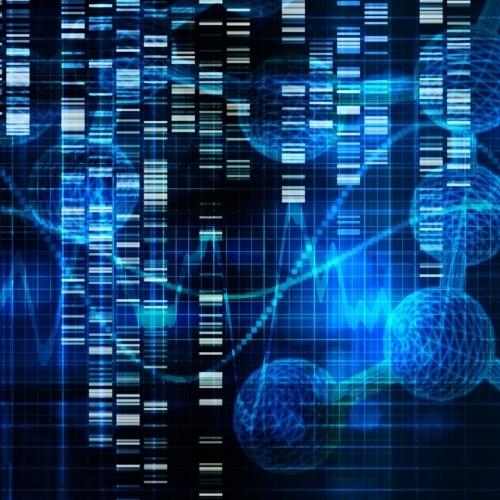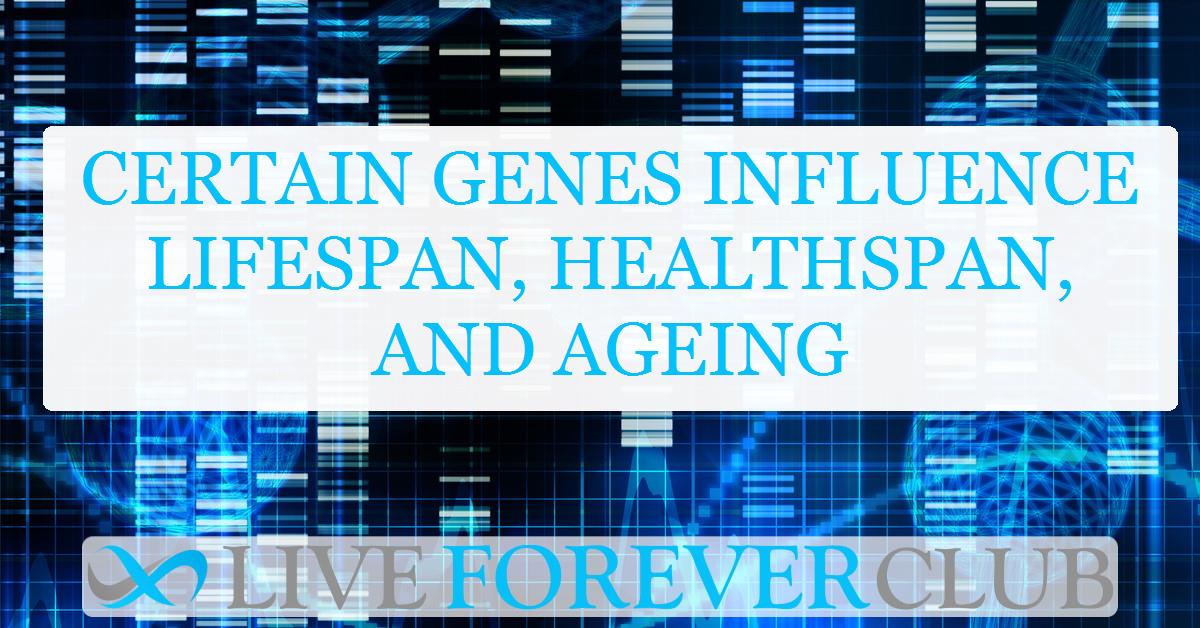Human ageing is a complex process influenced by genetics, environment, and lifestyle. While some people experience chronic diseases early in life, others remain healthy and active into old age. Researchers have been investigating the biological mechanisms behind these differences, and recent genetic studies have provided insights into how certain genes influence lifespan, healthspan, and longevity.
Investigating the Genetics of Ageing
A recent large-scale study combined data from multiple genome-wide association studies to explore the genetic basis of ageing. By integrating information from studies on healthspan, parental lifespan, and longevity, researchers identified several genetic loci associated with all three traits. Some of these regions were previously linked to ageing, while others were newly discovered. One key finding was the role of haem metabolism in human ageing, suggesting that iron regulation plays a crucial role in determining lifespan and healthspan.
Ageing is marked by a gradual decline in the body's ability to maintain balance, leading to an increased risk of cardiovascular disease, neurodegenerative disorders, and metabolic syndromes. While lifestyle choices such as diet and exercise influence ageing, genetics also play a role. However, determining which genetic factors contribute to ageing has been challenging due to the complexity of the process and the relatively low heritability of lifespan and healthspan.
Genetic Contributions to Lifespan and Healthspan
The study found that genetic factors account for approximately ten percent of the variation in lifespan and healthspan, meaning that non-genetic factors still dominate. However, by analyzing large datasets, researchers were able to identify specific genetic variants that influence ageing. The study examined genome-wide association data from over one million individuals of European ancestry, focusing on three ageing-related traits.
Healthspan was defined as the number of years lived in good health, free from major diseases. Parental lifespan was used as a proxy for genetic influences on longevity, based on the assumption that individuals inherit longevity-related genes from their parents. Longevity was defined as survival beyond the 90th percentile of the population, meaning individuals who lived significantly longer than average.
By analyzing these traits together, researchers increased the statistical power to detect genetic associations. They identified ten genetic regions that influenced all three traits. Five of these had not been previously reported at genome-wide significance, suggesting that they represent novel ageing-related loci. Many of these genes were linked to cardiovascular health, which aligns with the fact that cardiovascular disease remains a leading cause of mortality worldwide.
Key Ageing-Related Genes
One of the most well-known genes associated with longevity is FOXO3, which has been extensively studied across various populations. The study confirmed that FOXO3 plays a role in ageing and identified additional genetic variants near the gene that may contribute to its effects. Another gene, APOE, was strongly associated with lifespan and longevity, particularly in older individuals. APOE is well known for its role in Alzheimer’s disease, and its effects on longevity are likely mediated through both neurodegenerative and cardiovascular pathways.
In addition to these previously known ageing-related genes, the study identified novel genetic loci, including SLC4A7, LINC02513, ZW10, and FGD6. These genes have not been widely studied in the context of ageing, but their identification suggests that they may play important roles in maintaining health later in life. Many of these genes are involved in biological processes such as cell signaling, DNA repair, and immune function, all of which are known to contribute to ageing.
Differences Between Men and Women
The study found that some genetic variants had different effects depending on sex. Some had stronger effects in men, while others had a greater impact on women. For example, the APOE gene influenced longevity more strongly in women, possibly due to differences in hormone regulation or disease susceptibility. This finding underscores the importance of considering sex differences in genetic studies of ageing, as the same genetic variants may have different effects depending on biological context.
The study also explored how genetic effects change with age. Some genetic variants had stronger effects on survival in middle age, while others became more influential in old age. The APOE gene, for instance, had a growing impact on longevity with age, likely due to its link to Alzheimer’s disease. In contrast, other genes had their strongest effects earlier in life, suggesting that genetic influences on ageing are dynamic and change over time.
Haem Metabolism and Ageing
One of the most intriguing discoveries was the role of haem metabolism in ageing. Haem is a crucial component of haemoglobin, the protein that carries oxygen in red blood cells. The study found that genes involved in haem metabolism were highly active in individuals with longer healthspans. This suggests that maintaining proper haem metabolism may be important for promoting healthy ageing.
Iron is essential for many biological processes, but excessive iron can be harmful. High levels of iron in the body can lead to oxidative stress, which damages cells and accelerates ageing. Using Mendelian randomization, a technique that determines causal relationships, researchers found that higher iron levels were associated with shorter lifespans, reinforcing the idea that iron overload may contribute to ageing.
This finding aligns with previous research showing that individuals with hereditary haemochromatosis, a genetic disorder that causes excessive iron accumulation, often experience health problems and reduced lifespan. It also suggests that managing iron levels through diet or medical interventions could be a potential strategy for extending healthspan.
Implications for Healthy Ageing
These findings highlight potential strategies for promoting healthy ageing. Managing iron levels through diet or medication could help extend healthspan and reduce the risk of age-related diseases. Understanding how specific genes influence ageing may also lead to personalized treatments in the future.
By identifying genetic factors that influence lifespan, healthspan, and longevity, this study provides valuable insights into the biological mechanisms of ageing. Researchers can now explore potential interventions to slow down ageing by targeting the haem metabolism pathway to regulate iron levels and reduce oxidative stress.
Role of DNA Repair and Immune Function
Beyond haem metabolism, the study also found enrichment of other biological pathways related to ageing. These included processes involved in DNA repair, immune function, and cellular homeostasis. Maintaining genome stability is essential for preventing age-related diseases such as cancer, and several of the identified genes were involved in DNA damage response pathways.
The immune system also plays a critical role in ageing. As individuals age, their immune systems become less effective at fighting infections and maintaining tissue health. Some of the genes identified in the study were linked to immune regulation, suggesting that genetic variations in immune function may contribute to differences in lifespan and healthspan.
Impact of Metabolic Regulation
The study also highlighted the role of metabolic regulation in ageing. Several identified genes were involved in metabolic processes, including glucose and lipid metabolism. Metabolic health is closely linked to ageing, with conditions such as diabetes and obesity accelerating the ageing process. Identifying genetic factors that influence metabolism could help prevent metabolic disorders and extend healthy life.
Complexity of Ageing
While this study provides valuable insights into the genetics of ageing, it also highlights the complexity of the ageing process. Genetic factors interact with environmental influences, making it challenging to pinpoint specific mechanisms that drive ageing. However, by studying multiple ageing-related traits together, researchers can identify common genetic pathways that contribute to longevity and healthspan.
Future research will likely build on these findings by exploring how genetic variants interact with lifestyle factors. For example, understanding how diet, exercise, and other behaviors modify the effects of ageing-related genes could lead to more effective interventions. Expanding studies to include diverse populations will also be crucial to ensure that findings are applicable to different genetic backgrounds.
Looking Ahead
Ultimately, the goal of ageing research is not just to extend lifespan but to improve the quality of life in old age. By identifying genetic factors that promote healthy ageing, scientists can develop therapies to reduce the burden of age-related diseases. This study represents a significant step toward unraveling the genetic basis of ageing and offers new directions for future research aimed at enhancing longevity and well-being.
The integration of genome-wide association data has provided valuable insights into the genetic basis of ageing. The identification of genetic loci influencing healthspan, lifespan, and longevity suggests that common biological pathways contribute to ageing-related traits. The discovery of the role of haem metabolism highlights the importance of iron regulation in maintaining health. These findings pave the way for future studies exploring genetic and environmental interactions in ageing and open new avenues for developing interventions to promote long and healthy lives.
The study is published in the journal Nature Communications. It was led by Paul R. H. J. Timmers from University of Edinburgh.






